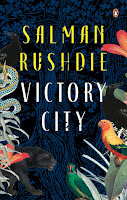
The Accidental Tourist
By Anne Tyler
Anne Tyler is exquisite. I reached that conclusion after coming late in life to her arguably best novel - The Accidental Tourist.
Macon Leary is a travel writer who hates to travel. Out of his discomfort from leaving home comes a series of guidebooks called The Accidental Tourist aimed at making people feel as close to home as possible in cities around the world. Macon is strangely eccentric in his infuriating normality. He is a slave of habit, afraid of anything approaching spontaneity, dislikes the new and is quite obsessively repressed.
The book opens with Macon trying to save a crumbling marriage after the death of an only son. His wife Sarah moves out, unable to cope with Macon's stumbling obsessive efforts at maintaining normalcy in a completely abnormal situation, accusing him of a lack of engagement with the world.
As Macon lurches back into the Leary home with his two brothers and a sister, a household where he fits right in with his obsession for order and correctness, in comes Muriel, the dog trainer, into his life. Muriel in some respects is the exact opposite of Macon. She is a young single mother, trying to cope as well as she can with a life that is forever slipping out of control. Her jobs are ad hoc, her attempts at giving her son a normal life are forever being derailed and she has a set of friends and family who seem as chaotic as her. Muriel inserts herself forcefully into Macon's life, making him re-assess it in a way he never has before. "Some lived careful lives and some lived careless lives, and everything that happened could be explained by the difference between them." Macon is finally forced to choose between the carefully lived life and the carelessly lived one. And depending on your own inclination, the reader ends up feeling he was right or wrong. And that really is an indication of how powerful a writer Tyler proves to be.
Baltimore is the scene of this small scale domestic drama. And Tyler is a chronicler of the everyday, of quiet, gentle intrinsically good people, of characters who are infuriating yet endearing, conservative yet eccentric. Her relationships have no loud flourishes, just whimpering confusing moments of unexpected joy, disappointment, fear and loathing. It is Austen-esque in its scale and acuteness. And the question the book asks resonates with mid life in ways inexplicable. "Which was better? Take all you own, and struggle to carry it? Or travel light, and spend half your trip combing the shops for what you've left behind?"



